
No Exit, Texas: Modern-Day Debtors’ Prisons and the Poverty Trap
A traffic ticket should sting. The fine should be enough to make you think twice before doing something like speeding again. But a traffic ticket shouldn’t derail your life—cost your job, make it impossible to pay your bills and feed your family, or deprive you of your freedom. Yet in Texas, for people too poor to write a check and move on with their lives, a simple traffic ticket leads to a cascade of unconstitutional and devastating consequences.
For people who can’t afford their traffic tickets, Texas’s criminal justice system is like a maze with dead ends at every turn. Unreasonable fees pile up and stop people from paying off their debt. Judges require payment for a hearing about inability to pay. Courts are incentivized to issue warrants for failure to pay. And many people who can’t afford their fines are unconstitutionally jailed for what are legally defined as “non-jailable” offenses. The result is a two-tiered system of justice, in which the well-off get what amounts to a slap on the wrist, and the impoverished are stuck in a system where the only exit is debtors’ prison.
This report discusses enforcement of Class C Misdemeanor fines and fees in Texas’s hundreds of Municipal and Justice of the Peace Courts. Practices vary, but our study of these local courts has uncovered a pattern of local courts criminalizing poverty, and perpetuating racial injustice, through unconstitutional enforcement of low-level offenses. It’s time for policymakers at every level of government to improve the fairness of sentencing for all Texans and put an end to these debtors’ prisons.
Documents
Related content

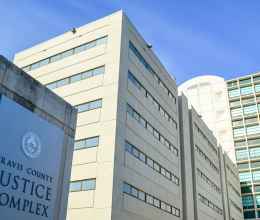
ACLU of Texas, Partners Reach Approval of Settlement Agreement to...
November 20, 2025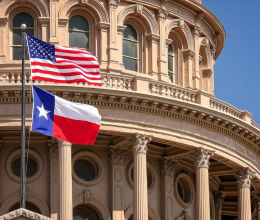
ACLU of Texas Responds to State Officials’ Attacks on Nonprofits
November 19, 2025
Why Police Traffic Stops Are Dangerous and Ineffective
October 30, 2025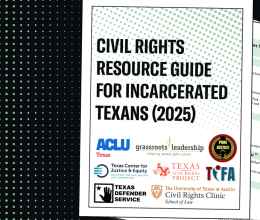
Advocating for Your Rights Behind Bars: How to Use Our Civil Rights...
August 15, 2025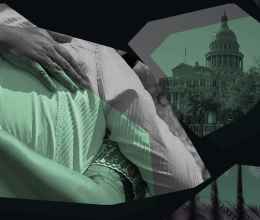
Texas’ Money Bail System Is Unfair and Ineffective
July 18, 2025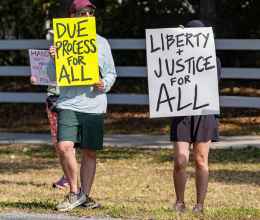
What Is Due Process?
May 28, 2025
ACLU of Texas, Civil Rights Groups Send Letter to Texas Lawmakers...
May 23, 2025